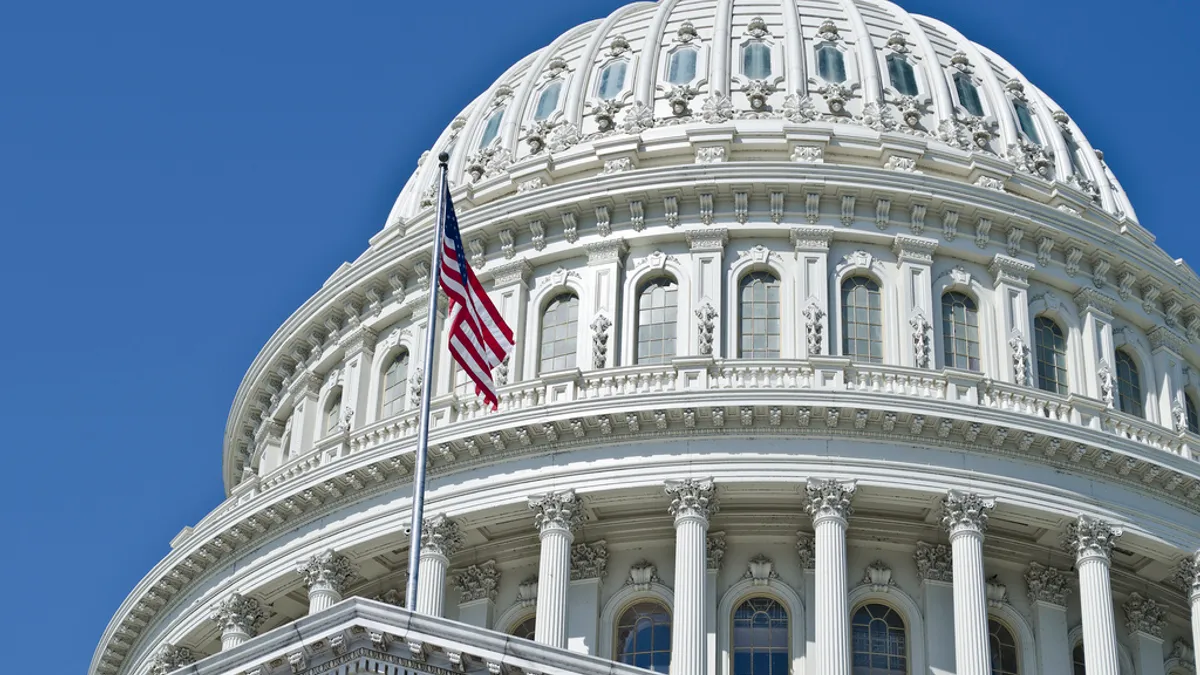Dive Brief:
- The transition to a greater reliance on natural gas and renewable energy generation in the nation's wholesale power markets is not a threat to power reliability, leaders of U.S. grid operators told a House subcommittee on Wednesday.
- Congress can help protect the electric utility sector from cyber and physical attacks through threat identification and validation, as well as the development of cybersecurity standards for industry, market leaders also told the House Energy and Commerce Committee's Energy Subcommittee.
- The wide-ranging hearing also touched on greenhouse gas regulation and market reform efforts, with the CEO of the New York ISO telling the subcommittee that it aims to integrate a price on carbon into its market dispatch within three years of publishing an upcoming carbon pricing report.
Dive Insight:
Leaders of the nation's seven organized wholesale power markets had few policy requests for Congress in their Wednesday hearing. Testimony largely focused on the changing fuel mix, with grid operators emphasizing that the nation's power supply is as dependable as ever.
In PJM, the nation's largest wholesale market, the generation fleet is "more diverse than it's ever been, more reliable than it's ever been and prices are lower than they've ever been," said Craig Glazer, vice president for federal government policy, echoing testimony of leaders from other regions.
The testimony comes as the Department of Energy prepares a report on the reliability of the nation's grid. Secretary of Energy Rick Perry has indicated the federal government could seek to overrule state clean energy policies if it finds they are pushing too many baseload plants offline.
While reliability is not threatened in the short term, ISO leaders told the subcommittee that the persistently low price of natural gas, coupled with stagnant power demand and renewable energy incentives, is stressing the finances of many merchant plants. Coal and nuclear generators are most threatened, but California ISO Vice President Keith Casey said that even gas generators in his market are under "financial duress."
To address these issues, ISO-New England and PJM have proposed market reforms that would separate power market auctions for subsidized resources — like renewables— from auctions for unsubsidized resources. The question is whether to let large power plants, like coal and nuclear generators, set the price in wholesale power markets, Glazer said.
PJM and the New York ISO are also working on carbon pricing proposals that seek to integrate state environmental goals into wholesale market prices. The best way to control carbon emissions, said NYISO CEO Brad Jones, would be to "to integrate it into the dispatch on the market side."
PJM and ISO-NE stakeholders are still reviewing their carbon pricing proposals, and NYISO last year hired the Brattle Group to devise a plan to integrate carbon pricing into the state's wholesale market. That report will be published "very shortly," Jones said, and full implementation of carbon pricing could come within three years.
Those market initiatives don't require much action from Congress, grid leaders said, though ISO-NE CEO Gordon van Welie said his stakeholders would appreciate more certainty on long-term carbon regulation from Congress. Where the legislators can more directly assist the markets are security efforts, the operators said.
"To the extent feds have knowledge of credible threats, that is information that we can then respond to as we're looking to build out the system," Glazer said after the hearing. "These are longer term threats, not immediate things, but longer term the federal government would have a lot more information on that than we do."
The identification of these security threats can help grid operators and utilities better justify investments in security technology and protocols, van Welie said. And Brown called on Congress to "support the standard development process" for cybersecurity protocols.
"Standards are important because we're all in this together, highly interconnected, highly interdependent, so we must all operate at a minimum threshold," Brown said. "But in order to keep up with the attacks that are happening in real time, we have to go above and beyond the standards, because the policy can never keep up with the technology," he added.













